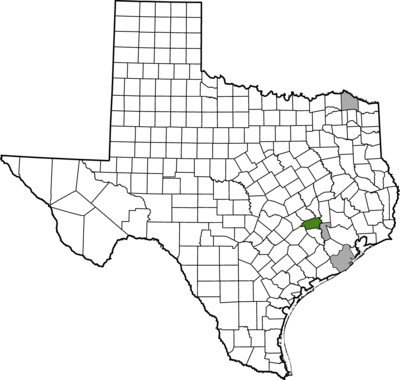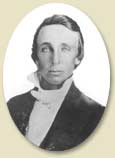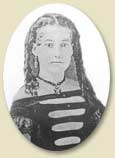
Washington County
Exploring Slavery and its Afterlives
The Seward Family: A Genealogy and Profile of Washington County’s Landed Aristocracy, 1828-1955
In Washington County, home of the temporary capital of the Republic of Texas, the population boomed after independence as Anglo-American settlers, like Samuel Seward, flocked to the area to access fertile farmlands along the Brazos River. Born in Pennsylvania on December 29, 1794, Seward married a woman from Virginia named Anna. Sometime around 1828, Samuel and Anna brought their children and the people they enslaved to Texas. He purchased farmland in Cole’s settlement that was later renamed Independence, Texas.


Sam and Anna Seward’s family included their adult sons John and George Seward. Following their parents, John and George moved from Illinois to Texas in 1835. The elder Seward, Samuel, was a part of Stephen F. Austin’s first settlement in Texas. Samuel Seward gave a portion of his land to his son John Seward to build a home for him and his wife Laura Jane Roberts and establish a plantation on La Bahia Road near his home. John’s home still stands.
John’s home, was originally a dogtrot and located a few miles from the current location (See image below on the left). The family, assisted by enslaved people, moved the dwelling by rolling it on logs because they did not like the first location. Once settled in their newly relocated home, the John and Laura raised five children. Their eldest son, Oscar, took over the house and later bequeathed it to his son, Colonel Oscar Seward. Oscar served in World War I as a captain in the US Army and as a colonel in World War II. He and his wife Lira made the first major restoration of the house in 1955.


Footnotes
1 Cynthia and Wiley George are the current owners of the Seward Plantation. Prairie View A&M University via the Ruth J. Simmons Center for Race and Justice has an educational partnership with the family that allows students and faculty to visit the grounds to study slavery.
